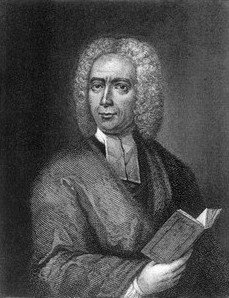Saturday 20 July 10.00-5.00 pm
Chinley Independent Chapel, The Wash Road, Chapel Milton,
Chinley, High Peak, SK23 0QN
The Congregation Federation is hosting a celebration of Watts' Anniversary at Chinley Chapel on Saturday 20 July. This free day will include talks, workshops, hymn-singing, children's activities, and lunch, with guest presenters including the Revd Dr Graham Adams and Revd Dr Janet Wooton. Further details to follow: to register, please email the Revd Peter Sharp at revpetersharp@gmail.com
A Celebration of Isaac Watts, including an act of Thanksgiving
Saturday 21 September at 2.30 pm, with gathering music from 2.00 pm.
Melton Mowbray URC, Chapel Street Melton Mowbray Leicestershire LE13 1LZ
Acknowledged as the Father of English Hymnody, Congregational minister Isaac Watts is the author of "When I Survey the Wondrous Cross," "Joy to the World," and many other cornerstones of our hymnbooks. He taught briefly in Freeby, Leicestershire, and is associated with Freeby Chapel, which has now merged into Melton Mowbray URC. The year 2024 is the 350th anniversary of Watts' birth, and in celebration, we look forward to welcoming the Rev. Dr. Robert Pope of Westminster College to talk about Watts, his God, and his legacy in the present day. The event will include opportunities to sing and listen to some of Watts' best-loved hymns and will be followed by refreshments, including, of course, Melton Mowbray pork pies.
You are invited to save the date and watch for further details. Information about how to book will be available here soon.








